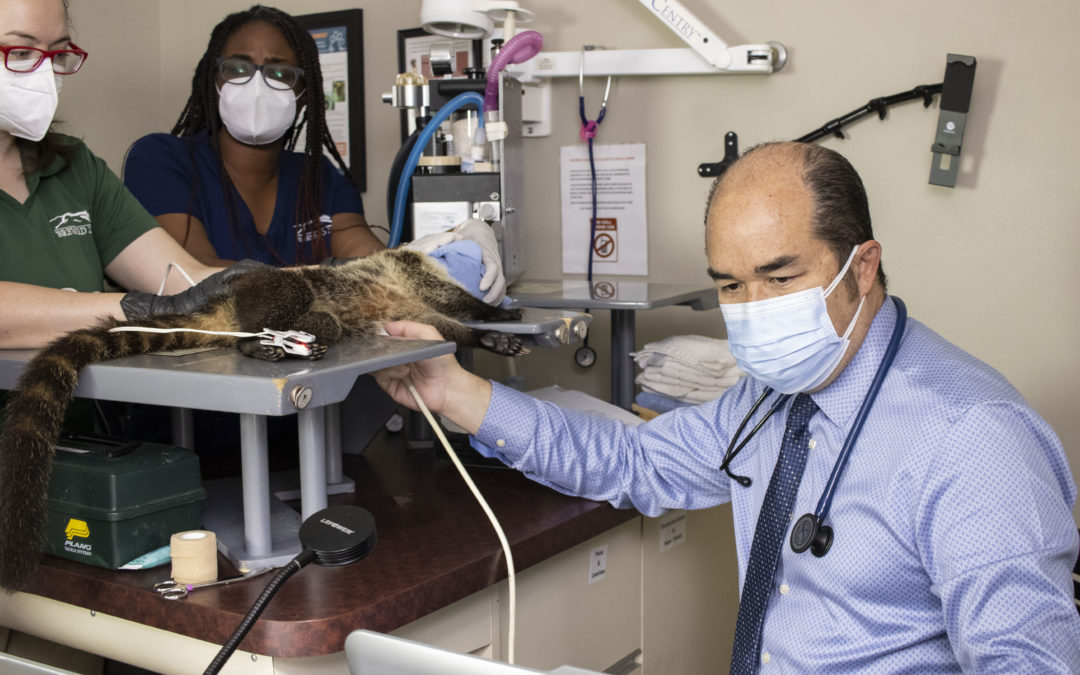Thanks to the hard work and quick action of the Brevard Zoo’s animal care team, 10-month-old white-nosed coatimundi Agave received a diagnosis and treatment plan following collapsing episodes. After a visit to a Dr. Borde last week, it was determined that Agave has a congenital heart defect, something that they will manage for the rest of her life.
Agave is one of three young coati kits who arrived last year as part of the Association of Zoos and Aquariums’ White-Nosed Coati Species Survival Plan. In September 2021, during a routine exam, they noticed that Agave had a heart murmur. At this point, it was not appearing to affect her, so they continued to monitor her closely and routinely rechecked this condition.
She did not show any signs of distress until March 7, when keepers found her collapsed in her Rainforest Revealed habitat. Agave was immediately taken to the zoo’s on-site hospital, where she was stabilized. The next day, she had another collapsing episode. After she recovered, they collected radiographs, bloodwork and urine and sent them to be evaluated. They suspected these episodes were related to cardiac issues and gave Agave medication to minimize her symptoms. Over the past week, Agave has stayed in her holding space for monitoring. To decrease her stress while in this environment, her roommates, Romi and Tito, stayed behind the scenes with her during this time.
X-rays of Agave’s chest were sent to a radiologist, who did not see any significant findings. The next step was to schedule an appointment with a cardiologist to diagnose her condition so the Zoo could better manage it.
Last month, a group of veterinary and animal care staff transported Agave to Animal Specialty & Emergency Center to meet with Dr. Davin Borde, a board-certified veterinary cardiologist. Dr. Borde performed an exam and ultrasound on Agave, who was anesthetized. Dr. Borde ultimately diagnosed our young coati with subaortic stenosis, a congenital heart defect. This means that her aorta (the large vessel that supplies blood to the body) is narrowed at the entrance, which prevents the normal outflow of blood and can cause heart failure. Because of this condition, it takes more effort for Agave’s heart to pump blood to her body, which is why a heart murmur could be heard.
While genetic heart defect cannot be reversed or cured, it can be managed under human care. Unfortunately, it also means Agave is not expected to have a normal coati lifespan. Despite this diagnosis, the Brevard Zoo’s animal care team is committed to providing her with the best quality of life possible during her time with them. She will be on daily medications to help control her heart rate and rhythm and reduce fluid development in her lungs.
Because they now have a treatment plan and know what to watch for, Agave has been medically cleared to return back to her habitat in Rainforest Revealed.
Receiving these types of diagnoses is never easy, but the Brevard Zoo can rest assured knowing that they are providing the best possible care for Agave and the rest of the animals under their care.


Recent Comments